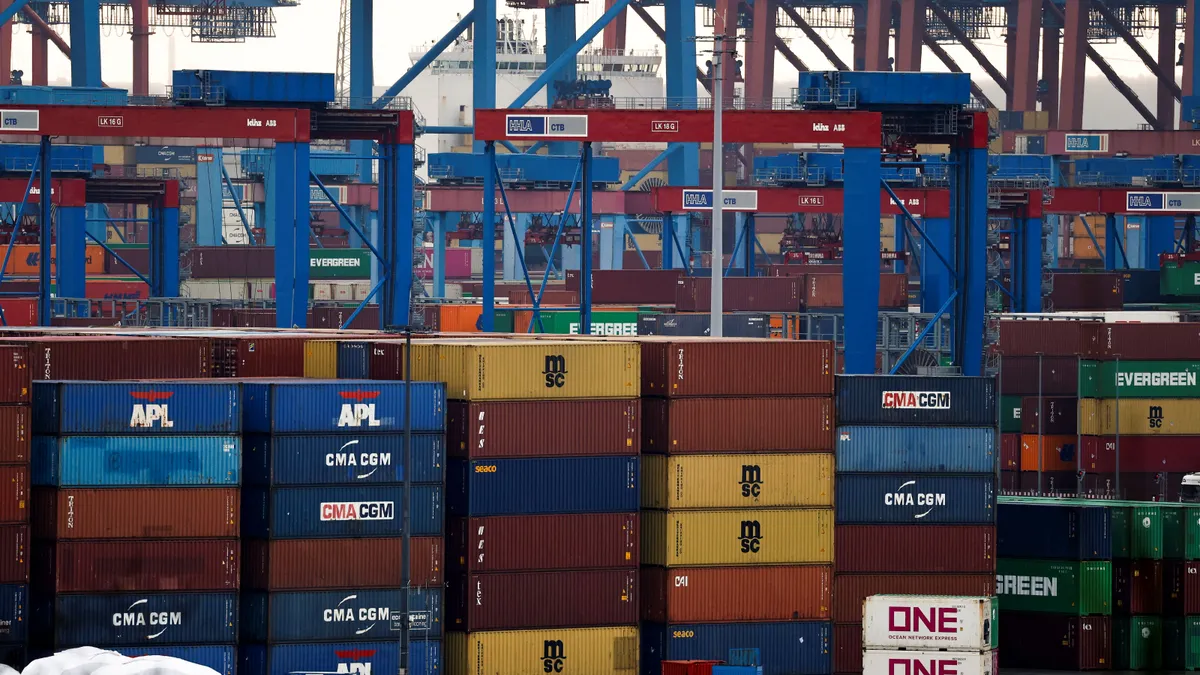In a private meeting earlier this month, the medical device trade lobby pushed Environmental Protection Agency Administrator Andrew Wheeler to swiftly issue federal regulations on ethylene oxide that would allow commercial sterilizers to continue to sterilize medical devices amid concerns over the health effects of the gas.
Access to the carcinogenic gas, used to sterilize more than half of all medical devices, is under legal and legislative pressure, with commercial sterilizer plants in Illinois, Michigan and Georgia already forced to temporarily or permanently close.
Senior FDA officials including former Acting Commissioner Ned Sharpless have cautioned further plant closures could trigger widespread medical device shortages. And Suzanne Schwartz, director of FDA's Office of Strategic Partnerships and Technology Innovation, warned at an advisory committee meeting Nov. 6-7 that with even just two additional closures, a "catastrophic national impact … is almost a certainty."
AdvaMed is concerned forthcoming regulations that rely on the EPA's 2016 Integrated Risk Information System (IRIS) findings will lead to widespread device shortages and a public health crisis. The report found that the likelihood inhaled ethylene oxide is carcinogenic is "high."
In late September, EPA announced it would delay federal rulemaking on commercial sterilizers using the gas to gather more data on the potential impacts from new emission standards.
When asked about the Nov. 1 Wheeler meeting, EPA spokesperson Molly Block told MedTech Dive the agency does not give readouts of topics discussed.
But, in an interview with MedTech Dive, AdvaMed Chief Advocacy Officer Greg Crist said the trade group focused on conveying two points to Wheeler during the meeting.
First, AdvaMed "pressed for clarity from the agency" on how it intends to use its IRIS findings in its future rulemaking. And second, the trade group expressed concern a lack of federal action on ethylene oxide is leading states to regulate on their own.
"There was a greater appreciation coming out of the meeting on how states, in the absence of federal guidance, were taking it upon themselves, minus a full appreciation of the science," Crist said. "Under the Clean Air Act, the federal law is the floor. States can come in and add to it. What we're saying is, create a rule where we, as industry, can upgrade our technologies and come into compliance with the new emission mandates."
Genna Reed, lead science and policy analyst at the Union of Concerned Scientists, was alarmed at the potential of EPA not relying on its own IRIS value for rulemaking, saying the agency must "act with serious urgency" on ethylene oxide to protect communities across the country.
"It would be completely unacceptable for the EPA to abandon its own best available science as it determines how much emission reduction to require for ethylene oxide," Reed said. "We are strongly pushing for the agency to listen to its own scientists. There is no new scientific reason for EPA to ignore the IRIS value in any degree."
Reed said any industry meeting with Wheeler should be matched with meetings with communities facing elevated cancer risks from ethylene oxide.
States move forward without EPA
At the same time, the success of state legislative efforts to reduce allowable emissions of ethylene oxide have been mixed.
In Illinois, legislation was signed into law in June by Gov. J.B. Pritzker tightening restrictions on emissions of the gas. But a stricter bill that would require the eventual phaseout of ethylene oxide in hospitals and limit emissions from any source within 3.5 miles to 35 pounds annually failed to make it out of a key state senate committee Nov. 13.
On Nov. 8, Georgia State Representative Erick Allen, D-Smyrna, announced he would introduce legislation in early 2020 that would reduce the allowable amount of ethylene oxide permitted to be released by commercial sterilizers and require facilities to report any unpermitted release of ethylene oxide to the Georgia Environmental Protection Division.
Crist said AdvaMed has already started lobbying Georgia lawmakers to ensure sterilization facilities in the state will be able to continue to operate.
Congress has also taken an interest: on Nov. 20, Reps. Brad Schneider, D-Ill., and Jody Hice, R-Ga., launched a bipartisan congressional task force of 10 lawmakers "focused on addressing the threat of ethylene oxide emissions."
The task force is organizing support for a bill introduced by Schneider that would force EPA to issue ethylene oxide regulations that rely on the 2016 IRIS value.
Device supply chain starting to be stretched
Group purchasing organizations working with hospitals are already seeing the impacts of the closure of ethylene oxide sterilization facilities, David Gillan, senior vice president of sourcing operations at Vizient, told MedTech Dive in an interview.
"We have heard from our members that they are experiencing rolling backorders that are attributable to sterilization capacity constraints," Gillan said. "Manufacturers have, so far, been able to mitigate disruptions through prioritization based on available substitutions and inventory levels within the overall supply chain. Based on feedback from our member hospitals and suppliers, the system will not be able to withstand any further constraints in sterilization capacity."
FDA is directly aware of one hospital that has experienced backorders of medical devices relating to sterilization challenges, an agency spokesperson told MedTech Dive in an email. But the supply chain, while bending, has not broken yet.
"At this time, we are not aware of any shortages of essential devices as a result of sterilization not being available," the spokesperson said. "When concerns for product availability are brought to our attention, the FDA has taken, and will continue to take, proactive steps to avert a shortage and ensure patients have access to important and life-saving medical devices."
A spokesperson for the American Hospital Association told MedTech Dive the trade group has not yet heard of backorder concerns from its members.
FDA said it is actively monitoring for signals of potential medical device shortages due to closures of ethylene oxide sterilization plants and is encouraging manufacturers and providers to alert them if new concerns around device availability arise.
AdvaMed is aware of the backorder concerns but is not aware of what specific device types are being impacted.
"It's not something that has achieved critical levels," Crist said. "It's interesting because it speaks to the intricacies of the supply chain. There was concern six to eight weeks ago of orders of stockpiling. What we are starting to see are the backorders."



















